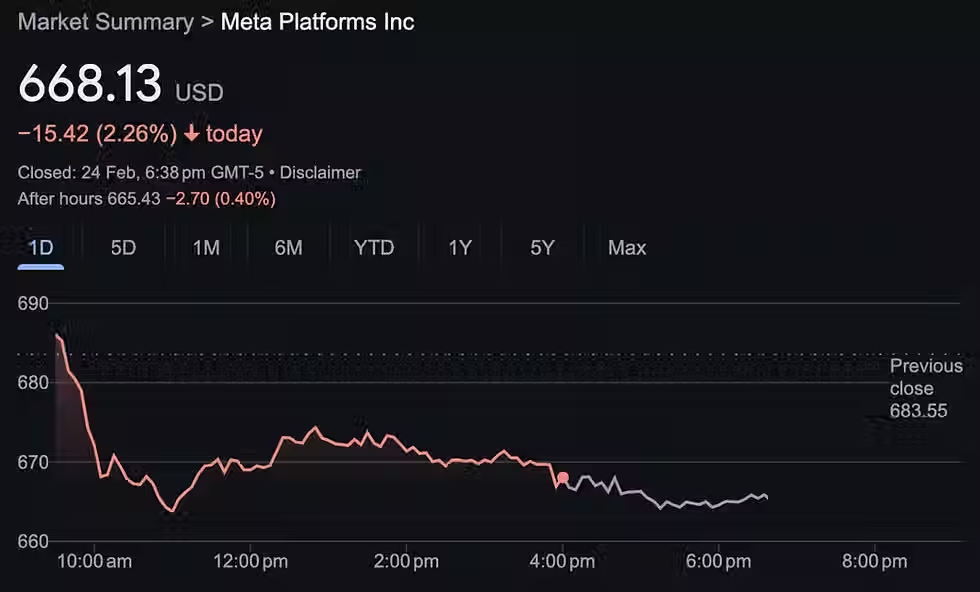A Comprehensive Guide to Long-Term Investing
- Buffett Online School

- Jul 26, 2023
- 5 min read

Over the past five years, the average stock market performance was 17.04% (or 13.64% when accounting for inflation) based on the S&P annual returns between 2017 and 2021. This figure is notably higher than the average stock market return of 10%.
This demonstrates the potential benefits of long-term investing. It also highlights the importance of adopting a long-term perspective when investing, as it allows you to harness the power of compounding and potentially realize higher growth over time.
When you do long-term investing, you usually stick to a buy-and-hold strategy. The main goal is to get good returns over the entire time you hold onto it without worrying too much about short-term ups and downs in the market.
Investing is a journey that requires careful planning, knowledge, and a long-term perspective. While various investment strategies and approaches exist, long-term investing has proven reliable and practical for building wealth over time.
At Buffett Online School, we believe in investing in great companies you understand and utilizing Free Investing Resources to kickstart your investment journey is one of the best ways to learn.
What are Long-Term Investments
Long-term investments are financial assets or securities held for an extended period, typically years or even decades.
Long-term investments' primary objective is to build wealth and achieve financial goals over an extended timeframe. These investments are not for quick profits but for steady growth and capital appreciation over time.
Some long-term investments include stocks, bonds, mutual funds, real estate, and retirement accounts. Long-term investments also allow you to benefit from the power of compounding, ride out short-term market fluctuations, and potentially generate substantial returns in the future.

Benefits of Long-Term Investing
Long-term investing offers several benefits that can contribute to your financial success. Here are some key advantages if you adopt a long-term investment approach:
1. Compound Growth
One of the most significant benefits of long-term investing is the power of compounding. You can generate returns on your initial investment and the accumulated gains by reinvesting your earnings. Over time, compounding can significantly amplify your wealth and lead to substantial growth.
2. Reduced Market Volatility Impact
Short-term market fluctuations are common, but they often have a minimal impact on long-term investments. By staying invested over a longer time horizon, you can weather the ups and downs of the market and reduce the effects of short-term volatility on your portfolio.
3. Lower Transaction Costs
Frequent buying and selling of investments can lead to higher transaction costs, such as brokerage fees and taxes. Long-term investing minimizes the need for regular trading, reducing transaction costs and preserving more of your investment returns.
4. Tax Advantages
Long-term investments often come with tax advantages. When you hold investments for more than a year in many countries, you can qualify for favorable tax rates on capital gains. By taking advantage of these tax benefits, you can optimize your investment returns and retain more profits.
Fortunately, investors in Singapore don’t need to pay taxes for any capital gains. But that doesn't mean that we should be short-term focused. We will still do much better if we invest in the long run!
5. Saves you Time
Long-term investing eliminates the need for constant monitoring and frequent trading. Take a patient approach and hold investments for an extended period. You can avoid the time-consuming task of continuously analyzing market trends and making short-term trading decisions.

Long-term Investing Strategies
When it comes to long-term investing, there are various strategies you can use. Here are some commonly used methods:
1. Buy & Hold
When you use the buy-and-hold strategy, it involves purchasing investments and holding them for an extended period, regardless of short-term market fluctuations.
2. Growth Investing
In this strategy, you focus on investing in companies with high growth potential. These companies often reinvest their earnings to fuel expansion, increasing stock prices. You seek companies in emerging industries or with innovative products that have the potential to disrupt the market.
3. Value Investing
Value investing involves identifying undervalued stocks that are trading below their intrinsic value. Here, you look for companies with solid fundamentals, such as low price-to-earnings ratios or high dividend yields.
Your goal is to buy and hold stocks at a discount until the market recognizes their value.
4. Dividend Investing
Dividend investing focuses on investing in companies that regularly distribute a portion of their earnings to shareholders as dividends. Using this strategy, you will seek stable companies with a history of consistent dividend payments.
This strategy aims to generate income from dividend payments while potentially benefiting from capital appreciation.
5. Dollar Cost Averaging
Dollar-cost averaging involves investing a fixed amount of money at regular intervals, regardless of the market price. This strategy ensures that you buy more shares when prices are low and fewer when prices are high.
Dollar-cost averaging helps you mitigate the impact of market volatility and allows you to build a position in an investment over time.

Best Long-term Stock Investment
When considering long-term stock investments, several options can provide attractive returns.
We've compared these five long-term stock investments on their risk and rewards so you can review them and find the stock that suits your needs:
| Risk | Rewards |
Growth Stocks |
|
|
Stock Funds |
|
|
Dividend Stocks |
|
|
Value Stocks |
|
|
Small Cap Stocks |
|
|
1. Growth Stocks
Growth stocks are stocks of companies that are expected to grow at an above-average rate in the future. These companies often operate in industries with significant potential for expansion and innovation.
Growth stocks can provide substantial capital appreciation over the long term but can also involve higher risk.
2. Stock funds
Stock funds or equity funds, such as mutual funds or ETFs, help you diversify by combining several stocks into a single investment vehicle. These funds allow you to gain exposure to a wide range of companies and industries.
Stock funds also provide professional management and are suitable for long-term investors seeking diversification.
3. Dividend stocks
Dividend stocks are shares of companies that distribute a portion of their earnings to shareholders as dividends. Dividend investing can provide a steady income stream over the long term.
You can also check this quick video about dividend investing to learn more.
4. Value Stocks
Value stocks are companies whose stock prices are lower than they should be according to their basic financial information.
Imagine a value stock as a company currently offered at a discounted price: If you buy their shares now, you can profit later when other investors finally realize what they've been overlooking.
5. Small-cap stocks
Small-cap stocks represent shares of smaller companies with a market capitalization below a certain threshold. Small-cap companies often have more room for growth than larger, more established ones.
When you invest in small-cap stocks, it can provide you significant growth potential over the long term, although they may also carry higher volatility.
It's important to note that investing in individual stocks carries inherent risks, and thorough research and diversification are crucial to minimizing potential losses. If you're unsure about selecting individual stocks, consider investing in stock funds or consulting a financial advisor.
Long-term investing is a powerful strategy for building wealth over time. By understanding the benefits of long-term investing, adopting suitable investment strategies, and considering the best long-term stock investments, you can position yourself for financial success.
Remember to align your investments with your financial goals, diversify your portfolio, and maintain a long-term perspective. Start your journey toward long-term investing today and pave the way for your ideal financial future.
Join Our Free 2-Day BOS Value Investing MBA
At the Buffett Online School, we believe in learning the right investing mindset and system, so we can start cultivating emotional detachment and grow our wealth safely and substantially in the long run.
Our next 2-day BOS MBA Value Investing Online Bootcamp is happening soon! We will teach you how to use Warren Buffett's proven investing method to maximize your portfolio.

Remember, you have the choice to cultivate the right investing mindset and unlock your potential to build wealth through intelligent investing. Together, we can create a network of educated investors who make informed decisions and contribute to their financial well-being!
In the meantime, feel free to check out some of our blog posts to continue your learning. You can also join our BOS Telegram channel for more investing insights.





Comments